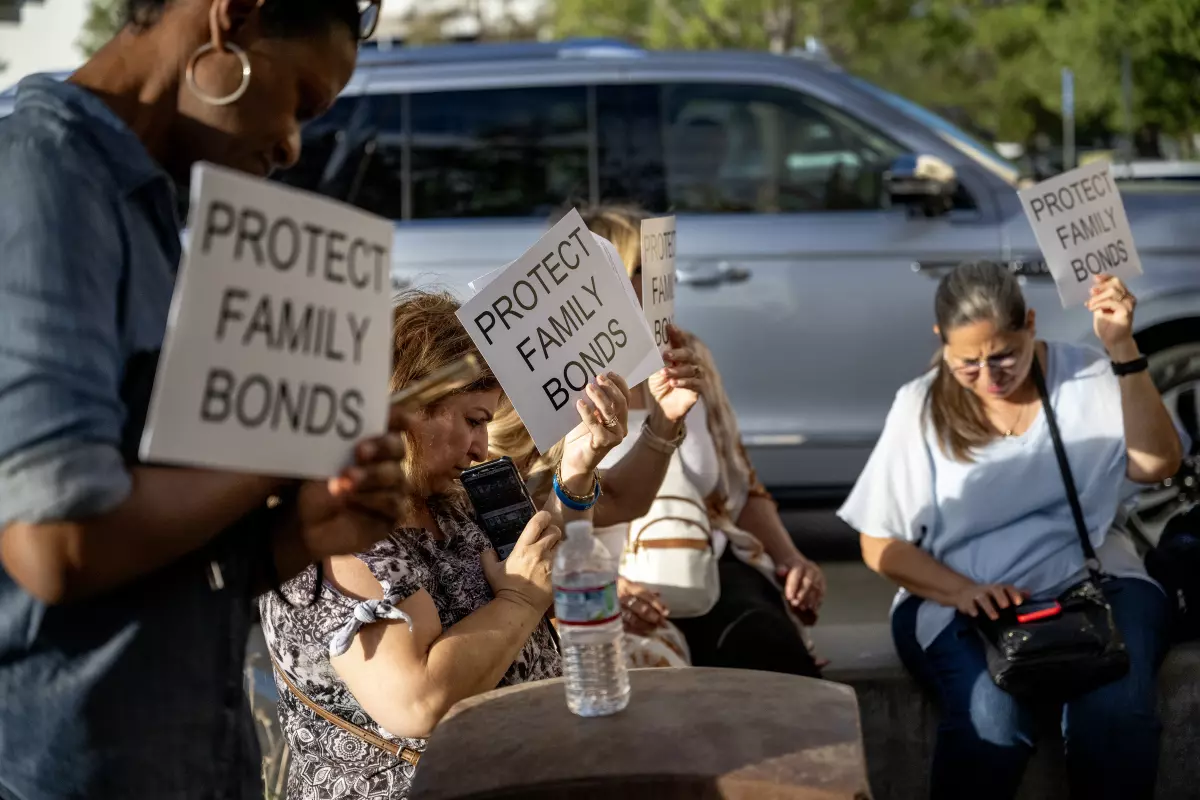I could probably spend every day compiling six or eight or ten of the most egregious examples of MAGA/Trump craziness, but I am trying not to. Let’s try a more substantial piece today. (I was busy with a family dinner yesterday, Sunday, and didn’t have time to post here.)
So, just one item today, about nuclear families and the Bible.
*
You might argue this either way. I’m going to try to consider both sides.

LA Times, Susan Goldberg, 29 Mar 2024: Opinion: Nuclear families aren’t the ‘traditional’ ones. The Bible is full of blended and chosen families
Here’s what she says:
In this election season, our newsfeeds will be flooded with stories about the culture wars. In the 1980s, when I was growing up, these issues were shaped by what was then a new force in politics, leaders of the religious right. As a kid in this era, I was strangely fascinated with the radio show “Focus on the Family,” a precursor to the booming right-wing media landscape that exists today.
“Focus on the Family” molded language, perception and culture with intentional word choices. The Bible was cited as the source and foundation of a very conservative worldview. I found this infuriating, because among the values I heard promoted were hateful, prejudice-filled judgments about my family. They called us dangerous and wrong because my mother loved a woman. These ideas were shared and repeated widely, and now the terms “family values” and “traditional families” are linked with this skewed perspective.
As I grew up and began studying the Hebrew Bible, the Torah, more deeply, the modern concept of the traditional nuclear family was not what I found. Most traditional biblical families do not have two parents, one a man and one a woman. Real biblical families are defined by complex, layered relationships, with multiple sets of parents and kids, often connected in ways other than genetics and blood.
The writer goes on with examples from the Bible, and the many kinds of families that exist today.
First, she has a point that the Bible is never as single-minded on most moral issues as its fans like to think. It’s a collection, or anthology, of stories from many sources, across many generations. Which most of its fans have not actually read, closely or critically.
Yet, second, the Bible reflects the eras in which it was written, when its writers lived in small towns, or tribes, with little exposure or knowledge of the outside world. Theirs reflect more the Savannah morality, as I’ve described it — with an emphasis on tribal solidarity and growth, and fear and demonization of outsiders — that has become deeply embedded in human moral thinking from the hundreds of thousands of years during which mind evolved, and which is mostly inappropriate in today’s global age, yet which lingers on in much of the population.
Some writers, e.g. David Brooks, have discussed the modern nuclear family as if it’s an aberration that is doing more harm than good. As if we should return to the tribal model, in which it takes “a village to raise a child”? That perspective has a certain validity, in terms of intuitive moral thinking. Or perhaps it’s not appropriate in the modern world. (I bought a book, based on an NPR interview with the author, called Everyday Utopia, by Kristen R. Ghodsee, that seems to be about this issue and many similar ones, but so far I’ve done no more than glance through it.)
The steady theme through books I’ve been reading lately, like the Pinker and Wilson books (from some 25 years ago) that I’ve blogged about here recently, and the more recent Moral Tribes by Joshua Greene, which I just began reading today, is that human morality evolved in the context of our ancestral environment, when humans lived in smallish tribes, and had evolved altruism to support the group’s survival, but which did not extend to outside groups. And now we’re here in the 21st century, when over the past couple hundred years the human population as greatly expanded, to fill the globe, and to make tribal morality, which we see today among conservatives, counter-productive. We’re a global race and need cooperation beyond the tribal to solve global problems.
But given the modern era, maybe the advent of the nuclear family was a kind of compromise. As towns and cities grew bigger, it became impossible to know everyone. And so, big towns and cities split into various tribes. Smaller social groups in which everyone could know everyone. (There’s that study that concludes people can’t truly connect with any more than about 150 people.) Perhaps of neighbors, perhaps of religious groups. Today, it seems, people form communities, or tribes, along similar concerns or interests. We join knitting clubs, or of bicyclists. Or fellow science fiction fans, even if they’re scattered around the world. But it’s become impossible for parents to raise their children among actual neighbors, anymore, in the way it used to be. (Another factor: people don’t settle into towns forever; we move around too much.)
The dilemma is, should people make attempts to act in ways that defy their ancient moral intuitions? For the sake of people they do not know; for the sake of the planet; for a higher cause — the survival of the human race? Or rather — is it *possible* for people to make such attempts?
\\
Every day I reread and copy-edit my post from the evening before. If this comment is still here, I have not yet done so for this post.





